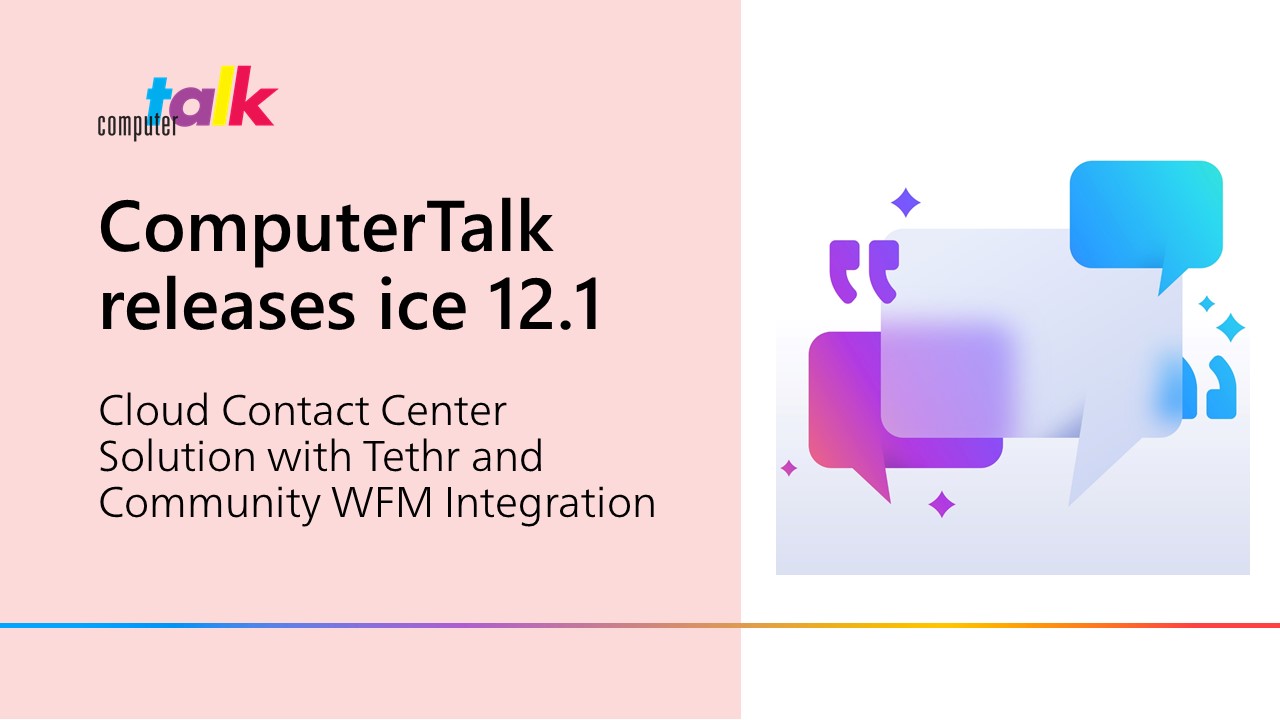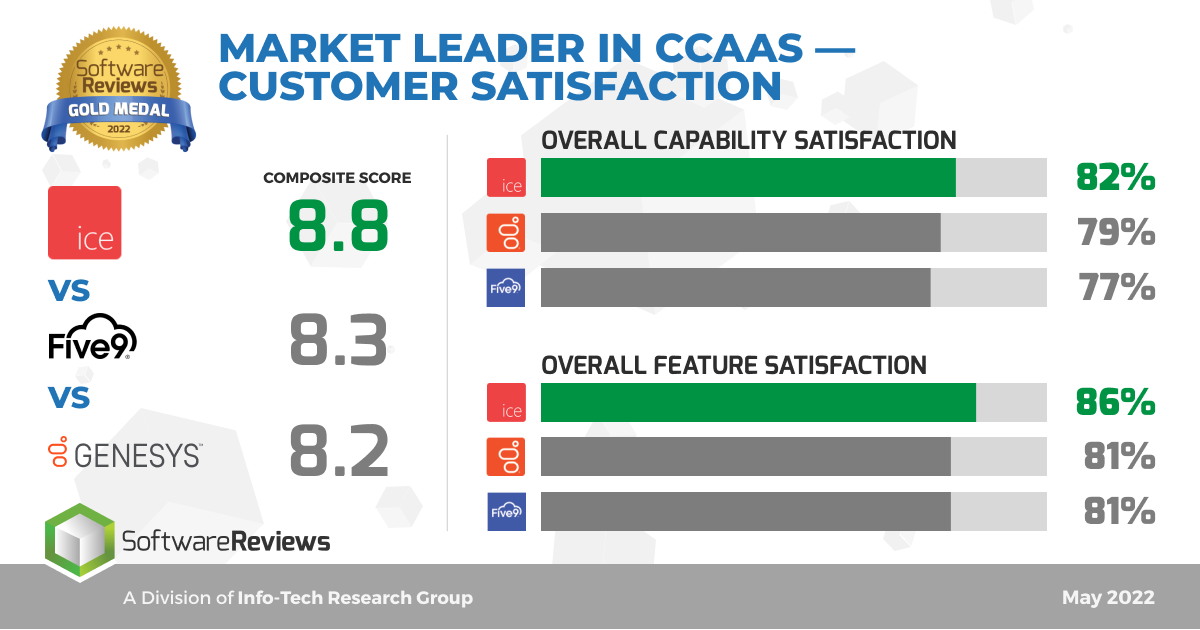Featured
How to Align Microsoft Teams for Superior Customer Service
by Anastasia Micic | Published On March 19, 2024 | Last Updated September 2, 2024

Explore how Microsoft Teams revolutionizes customer service in contact centers, fostering enhanced interaction, collaboration, and customer satisfaction.
In today’s competitive landscape, customer service has become an important focus for many businesses. Integrating Microsoft Teams into contact center operations marks a significant step toward digital transformation and more effective management of customer interactions. By leveraging Microsoft Teams, companies can transform their approach to customer engagement, establishing new benchmarks for excellent services.
This shift not only aligns with the digital era's demands for excellent experiences but also positions businesses as leaders in customer service innovation. Microsoft Teams, in conjunction with your contact center, facilitates a seamless integration of communication tools and customer data, enabling a more dynamic, responsive, and personalized service experience. As a result, organizations can deliver unparalleled customer support, strengthening their brand loyalty and competitive edge.
Why You Should Prioritize Customer Service as a Core Business Function
The integration of Microsoft Teams within contact centers highlights the critical importance of customer service in the modern business environment. It emphasizes the value of each customer interaction, which is integral to the overall business strategy, directly influencing brand perception and fostering customer loyalty.
Contact centers powered by Teams are transforming into customer service hubs where swift resolution, personalized interactions, and deep customer insights are the norm. Microsoft Teams offers more than mere communication through its facilitation of seamless team collaboration, thus ensuring a unified and enhanced customer journey.
Benefits of integrating Microsoft Teams with your contact center:
Unified Communication Platform: It consolidates all communication channels—voice, video, chat, and collaboration tools—into one platform, making it easier for agents to manage customer interactions. This integration streamlines how agents handle customer interactions and reduces the need to switch between multiple systems. With everything on one platform, agents can efficiently manage conversations, regardless of the channel, which leads to a more cohesive and responsive customer experience.
Improved Productivity: Microsoft Teams provides a seamless way for agents to collaborate with other departments, ensuring quicker resolution of complex customer issues by interacting with colleagues in real time.
Enhanced Customer Experience: Integration allows for faster and more personalized customer responses, as agents can access customer data such as their name and previous interaction history, collaborate with team members, and provide solutions in one unified space.
Improved Reporting and Analytics: The integration enables robust reporting and analytics, providing managers with insights into performance, customer trends, and operational bottlenecks.
Flexibility for Remote and Hybrid Work: This integration supports the flexibility of remote and hybrid work models, ensuring that agents can provide consistent services, regardless of their location. Whether they are working from home or in the office, agents have full access to all the necessary tools and communication channels, ensuring consistent service delivery.
Elevated Security and Compliance: Microsoft Teams is built with enterprise-grade security features, such as multi-factor authentication (MFA), which helps contact centers ensure that sensitive customer information is protected while meeting regulatory compliance requirements.
Using Teams’ advanced features with contact centers for fast, personalized support transforms customer service into a proactive, responsive entity. Leveraging analytics to anticipate customer needs and incorporating feedback for continuous service improvement further enhances this transformation. This strategy not only addresses but anticipates customer needs, promoting a strong, positive brand image and ensuring customer loyalty.
Cultivating Unforgettable Customer Experiences With Microsoft Teams
The integration of Microsoft Teams contact centers with Customer Relationship Management (CRM) systems can further transform how your business operates. This integration provides agents with instant access to essential customer information, enabling them to deliver tailored, informed decisions that deeply connect with the customer on an individual level. Key details such as addressing the customer by their first name or having information regarding their previous interaction help the agent build rapport. By harnessing this combined power of a Microsoft Teams contact center with a CRM integration, agents offer seamless and personalized experiences that foster trust and loyalty.
Through Microsoft Teams integrated contact centers, the way agents collaborate and work efficiently is transformed, which is crucial for quickly solving customer problems and creating positive experiences. Key capabilities such as the integration of various business applications and workflows enable agents to access customer information and resources directly within the platform during an interaction with customers, leading to streamlined processes and improving the customer experience. Additionally, contact centers that leverage Microsoft Teams promote a customer-first culture, ensuring that every interaction with the customer is meaningful and effective.
Minimizing Customer Effort With Multichannel Microsoft Teams Solutions
Modern contact centers integrated with Microsoft Teams enhance customer service through omnichannel capabilities, enabling seamless interactions across chat, voice, email, and social media on a single platform. This integration lets businesses efficiently meet customers on their preferred channels, significantly reducing customer effort and enhancing accessibility.
Omnichannel capabilities in modern contact centers, like those integrated with Microsoft Teams, are crucial because they align with customer expectations for seamless customer service across multiple platforms. 88% of customers emphasize that the quality of a company's customer service is as important as its products or services, underlining the significance of providing a cohesive experience across all channels to meet customer demands and foster loyalty.
Ensuring Personalized and Consistent Customer Experiences
Integrating your contact center with Microsoft Teams introduces a systematic method for enhanced customer interaction management, ensuring that every customer experience is consistent and personalized. Earning customer loyalty is important, and by strategically using Microsoft Teams features alongside contact center solutions, you can ensure consistent interactions at every touchpoint.
Strategies for enhancing service delivery within the Microsoft Teams environment include the implementation of automated workflows for swift responses, analytics for service optimization, and feedback loops for continuous refinement. Provide ongoing training for agents on how to effectively use Microsoft Teams contact center capabilities, including advanced collaboration tools, call handling features, and more.
The Value of Integrating Microsoft Teams
The integration of Microsoft Teams in contact centers signifies a pivotal development in the evolution of advanced customer service strategies. Aligning with the sophisticated capabilities and collaborative essence of Microsoft Teams enables businesses to enhance their customer experience with seamless communication, optimizing workflow efficiency, and more. This positions them at the forefront of innovation, guaranteeing customer satisfaction. As the influence of Microsoft Teams grows, its critical role in shaping the future of customer interactions and in achieving contact center excellence becomes increasingly valuable.
Read more about how Microsoft Teams is shaping the modern customer experience.
More from our blog
 Cloud Contact Center Solution with Tethr and Community WFM Integration
Cloud Contact Center Solution with Tethr and Community WFM Integration
 Last month, we shared on our blog that ComputerTalk’s ice Contact Center achieved the highest level of customer satisfaction in Info-Tech research Group's SoftwareReviews. We outperformed competitors, like Genesys and Five9, both in capability and feature satisfaction, as well as...
Last month, we shared on our blog that ComputerTalk’s ice Contact Center achieved the highest level of customer satisfaction in Info-Tech research Group's SoftwareReviews. We outperformed competitors, like Genesys and Five9, both in capability and feature satisfaction, as well as...
 I’ve had the privilege of growing my career as a lead engineer while helping guide ComputerTalk through one of the most transformative eras in our history.
I’ve had the privilege of growing my career as a lead engineer while helping guide ComputerTalk through one of the most transformative eras in our history.

